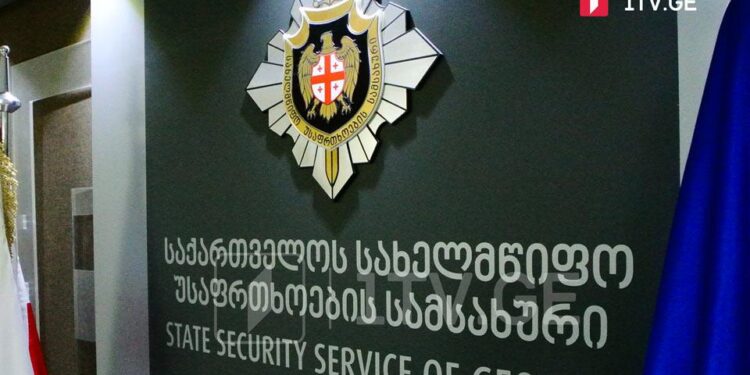Georgia’s Security Agency Addresses US Embassy Bomb Threat Alerts
In a rare public response, Georgia’s State Security Agency has openly criticized the United States Embassy in Tbilisi for its recent warnings about potential bomb threats in the city. This reaction has sparked meaningful debate regarding the delicate balance between ensuring public safety and maintaining effective diplomatic relations, especially in a region marked by geopolitical tensions. As security concerns escalate in Tbilisi, this criticism from the Security Agency highlights deeper worries about foreign influence on national security perceptions. This article delves into the specifics of this incident, reactions from various stakeholders, and its implications for Georgia’s ongoing relationships with Western partners.
Controversy Surrounding Bomb Threat Warnings from US Embassy
The clash between Georgia’s State Security Agency and the US Embassy has ignited fervent discussions regarding both the necessity and accuracy of bomb threat notifications issued within Tbilisi. Officials from the Security Agency have voiced concerns that such alerts could unnecessarily alarm citizens and damage Georgia’s international standing. They argue that while vigilance is essential, these warnings must be weighed against their potential consequences. Their position underscores that effective communication between foreign entities and local authorities is crucial; misleading alerts could undermine public trust in security measures.
On the other hand,representatives from the US Embassy defended their actions by asserting that these alerts are standard protocol designed to protect individuals abroad. The embassy emphasized its reliance on real-time intelligence gathered from diverse sources to ensure citizen safety within Georgia. This situation raises vital questions about bilateral relations, contemporary security protocols, and how to achieve a balance between providing clear information without inciting panic. As both parties navigate this complex issue further dialog might potentially be necessary to foster mutual understanding and cooperation.
Effects of Diplomatic Tensions on Public Safety Awareness
The recent exchange between Georgia’s State Security Agency and the US Embassy highlights growing concerns surrounding public safety amid deteriorating diplomatic relations. The embassy’s decision to issue warnings about possible bomb threats has raised eyebrows among government officials who contend such notifications might induce unnecessary fear among residents. This incident emphasizes how vital it is for authorities to maintain a careful balance when ensuring public safety while also cultivating an atmosphere of trust.
As tensions rise, citizens are left questioning not only these alerts but also their reliability as they navigate conflicting messages regarding safety protocols.
In light of these developments, enhancing personal security awareness becomes crucial for citizens who need to stay informed about potential threats effectively:
- Stay Informed: Regularly consult reliable news sources along with official communications for timely updates.
- Report Suspicious Activity: Always notify local law enforcement if you observe anything unusual.
- Cultivate Preparedness: Familiarize yourself with emergency procedures and available resources.
A collective commitment towards prioritizing public safety through awareness initiatives becomes increasingly essential as diplomatic tensions escalate.
Enhancing Cooperation Between Local Authorities and International Agencies
The critique aimed at the US Embassy by Georgia’s State Security Agency signals an urgent need for reassessing how local authorities engage with foreign agencies concerning security matters.To strengthen collaboration effectively, establishing clear guidelines promoting timely sharing of accurate information is critical.
Regular joint training exercises, focusing on emergency response strategies can significantly enhance mutual understanding while fostering trust between both parties involved.Additionally,
a unified communication platform could streamline alert dissemination processes thereby minimizing misunderstandings during critical situations.
A culture rooted in respect coupled with open dialogue will prove vital for prosperous collaboration moving forward.Local authorities should engage consistently throughongoing discussions with foreign entities addressing shared concerns as well as expectations.Initiatives likecommunity forums can serve as valuable platforms bridging gaps allowing citizens alongside officials alike voice opinions fostering shared obligation towards community welfare.Ultimately aligning interests along strategies will not only improve immediate responses but also strengthen long-term relationships concerning national security matters overall.
Conclusion: Navigating Future Complexities Ahead
This recent admonition issued by Georgia’s State Security Agency regarding U.S.-issued bomb threat warnings illustrates just how challenging it can be balancing national security priorities against adequately informing citizens.The embassy aims primarily at protecting its nationals abroad whereas Georgian authorities stress maintaining domestic stability alongside preserving public confidence.As Tbilisi navigates these multifaceted issues,the ramifications stemming from such warnings may shape future interactions involving key allies.Constructive dialogue paired with cooperative efforts remains essential when tackling pressing challenges related directly or indirectly affecting overall community well-being.As events unfold,both local stakeholders along international observers will closely monitor developments arising out this dynamic situation ahead.
















